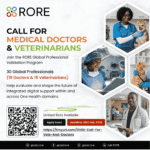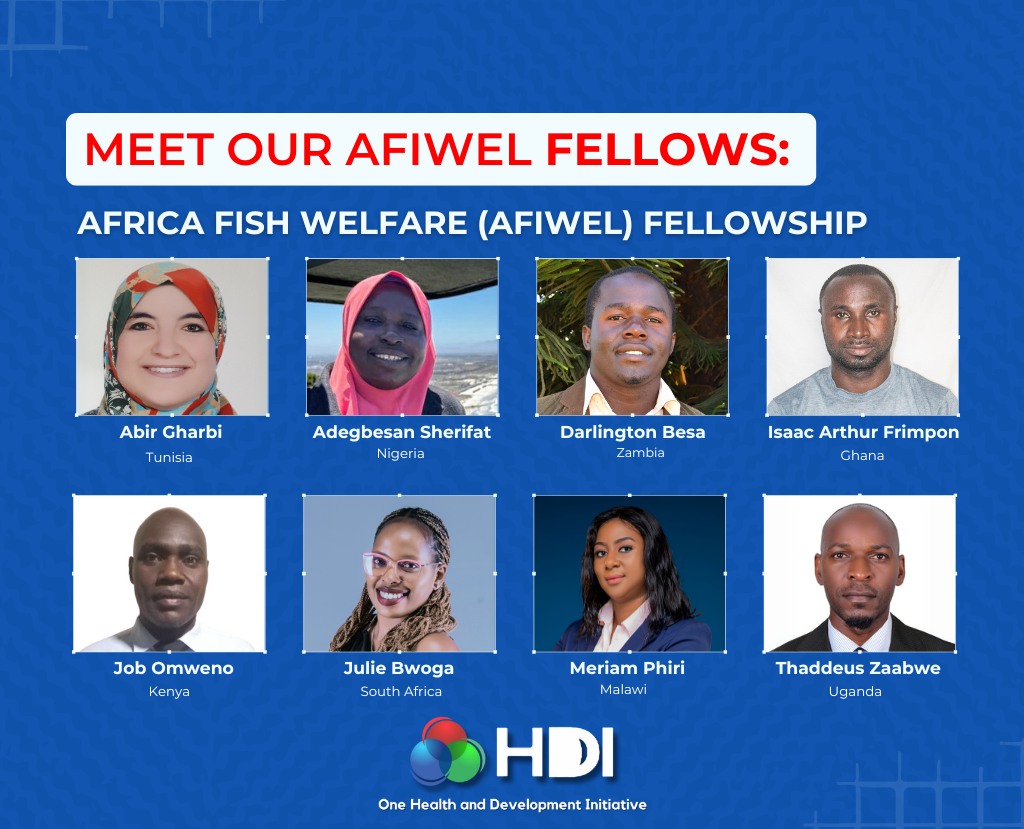
One Health Development and Initiative (OHDI) is delighted to announce the first cohort of the Africa Fish Welfare (AFIWEL) Fellowship. This group of eight aquaculture experts were selected from over 250 applications received across the continent. They will be representing 8 top fish-producing African Countries: Tunisia, Kenya, South Africa, Nigeria, Zambia, Ghana, Malawi, and Uganda. We are also glad to have this representation across northern, western, eastern, and southern regions of Africa, respectively.
The Africa Fish Welfare Fellowship is a six-month pan-African program for fisheries and aquaculture professionals focused on capacity building, community engagement, field implementation and integration of fish welfare practices into existing sustainable aquaculture frameworks and systems. The program aims to equip professionals with knowledge of global best practices in fish welfare, enhancing their capacity to implement welfare interventions such as stakeholder training, community mobilization, research, and policy advocacy.
Meet our fellows
Abir Gharbi (Tunisia)
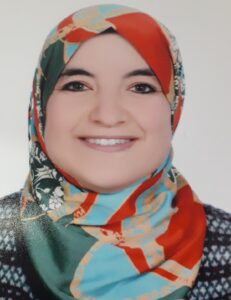
Abir Gharbi is a Fisheries and Environment Engineer with extensive experience in sustainable fisheries management and aquaculture. She holds an Advanced MSc in Sustainable Blue Growth from the University of Trieste, Italy, and an Engineering Degree in Fisheries and Environment from the National Agronomic Institute of Tunisia. Currently serving as a Senior Fisheries Technician with the Tunisian Ministry of Agriculture, Hydraulic Resources, and Fisheries, she specializes in monitoring fisheries, preparing permits, and reporting offenses.Her career spans diverse roles in research and conservation, including contributions to projects on aquaculture optimization, marine biodiversity, and coastal community development. Abir has also participated in international training programs on fisheries resource management and marine ecosystem conservation. With published research in genetic toxicology and marine biology, she combines scientific expertise with a passion for advancing sustainable fisheries practices. She brings a global perspective to her work and is proficient in Arabic, English, French, and Spanish.
Adegbesan Sherifat (Nigeria)
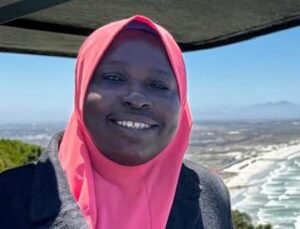
Dr. Sherifat Adegbesan is a Senior Lecturer in the Department of Fisheries Technology at Edo State College of Agriculture and Natural Resources, Iguoriakhi. She holds a PhD in Fish Nutrition, and her interdisciplinary research is focused on Dietary supplementation using Phytobiotics in cultured fish diets. She started her professional experience in Aquaculture and Fisheries at the Ministry of Agriculture, Ogun State, Nigeria, where she rose to the position of Principal Fisheries Officer in charge of Capture Fisheries and Fisheries Extension before joining the Teaching Profession. She is a seasoned expert in aquaculture nutrition, fish welfare, and gender integration in aquaculture and fisheries.
Darlington Besa (Zambia)
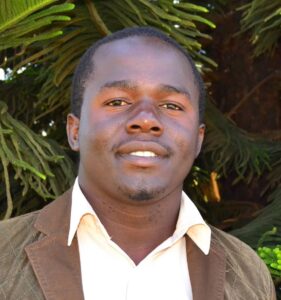
Darlington Besa is a Senior Researcher at the Aquaculture Research Institute of Zambia (ARIZ), under the Department of Fisheries, where he leads the Molecular Biology and Food Safety Laboratories. With expertise in aquaculture genetics, fish breeding, bioinformatics, fish nutrition, aquatic health, and pond limnology, he has a keen interest in advancing sustainable aquaculture practices. He holds a Master’s degree in Limnology and Wetland Management, with a thesis focusing on the population genetics of key Oreochromis species. He is passionate about integrating fish welfare into production systems and remains dedicated to improving aquaculture productivity while addressing environmental and animal health concerns.
Isaac Arthur Frimpong (Ghana)
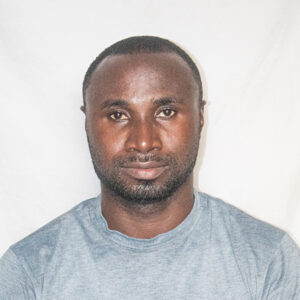
Isaac Arthur Frimpong is an Assistant Fisheries Manager at the Western Regional Directorate of the Fisheries Commission of Ghana, overseeing Post-Harvest Management and Gender in the Jomoro Municipality. He brings a strong academic foundation to his role with a Bachelor of Science in Natural Resources Management from KNUST and certifications in Fisheries Management, Human Resource Management, and Greenhouse Recirculatory Aquaculture Systems. His experience includes serving as a Community Liaison Officer under USAID-funded projects, where he facilitated stakeholder meetings, promoted sustainable fisheries, and provided aquaculture extension services. He also contributed to the GIZ-supported “Promoting Aquaprenuership in the Western Region, Ghana” project, delivering training on farm management, fish processing, and marketing. His dedication lies in advancing aquaculture development, sustainable fisheries management, and gender equity in the sector.
Job Omweno (Kenya)
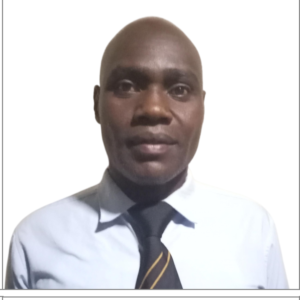
Job Omweno is the Sub County Fisheries Officer at the County Government of Kisii, one of Kenya’s 47 devolved units. He holds an MSc in Fisheries, sponsored by the African Development Bank Scholarship (2018-2021), and a BSc in Applied Aquatic Science from Egerton University. Job’s research interests are centered on the aquaculture potential of native tilapiine species, aquaculture technologies, utilization of microalgae and aquatic plants, alternative fish and livestock feeds, and fish welfare. Since September 2023, he has also been a part-time lecturer at the Department of Environment, Natural Resources, and Aquatic Sciences at Kisii University. Previously, Job gained valuable experience as a research intern at the Kenya Marine and Fisheries Research Institute (2015-2017) and as a project technician on various international projects in Kenya funded by JICA, IFAD, and the World Bank.
Julie Bwoga (South Africa)
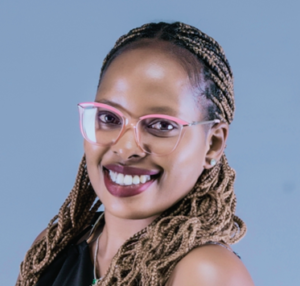
Julie Bwoga is an aquatic animal health scientist with expertise in Fish Parasitology, focusing specifically on tilapia populations. She is pursuing a PhD in Fisheries Science at Rhodes University, where her research explores the population genetics of the genus Gyrodactylus and its epidemiological impact on both farmed and wild tilapia in South Africa.
Julie holds a Master’s degree in Fisheries and Aquatic Sciences and a Bachelor’s degree in Fisheries and Aquatic Sciences, complemented by a Postgraduate Diploma in Technical Trainers Education and a Diploma in Fisheries and Aquaculture Management. Her qualifications are further enriched by certifications in Deep Sea Fisheries Management in Areas Beyond National Jurisdiction, Environmental Policy, and International Trade in Fisheries and Aquaculture Products.
A passionate advocate for fish health and welfare, Julie promotes sustainable aquaculture practices that align with the One Health concept, emphasizing the interconnectedness of human, animal, and environmental health. Her work integrates scientific research with capacity-building initiatives, aiming to improve disease management strategies and foster sustainable fish production systems.
Meriam Phiri (Malawi)
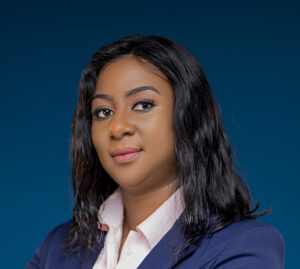
Driven by a deep concern for the health of the African Great Lakes, Meriam Msatilomo Phiri, a Research Assistant at WorldFish, has demonstrated a strong commitment to sustainable aquaculture in Malawi. Witnessing the devastating impact of the 2020 and 2021 Epizootic Ulcerative Syndrome outbreaks, she has actively participated in disease surveillance and the development of Malawi’s Aquatic Animal Health and Biosecurity Strategy. Meriam’s expertise extends beyond project management and data analysis; she has successfully led projects promoting climate-smart Integrated Aquaculture-Agriculture systems, resulting in a 45% improvement in household food security for over 300 farmers. Through the AFIWEL fellowship, Meriam seeks to expand her research capabilities, develop innovative solutions for fish disease prevention, and mentor future generations of women scientists, ultimately contributing to a healthier and more sustainable future for the African Great Lakes region.
Thaddeus Zaabwe (Uganda)
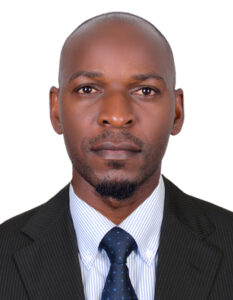
Thaddeus Zaabwe is an Aquaculture Researcher with the National Agricultural Research Organisation (NARO) in Uganda with over a decade of Aquaculture research. Thaddeus is pursuing his PhD in Fisheries Science at Mzuzu University Malawi under the African Centre of Excellence in Neglected and Underutilised Biodiversity (ACENUB) World Bank Scholarship. In addition, Thaddeus is passionate about climate change, food systems and One Health concepts, aquatic biodiversity conservation, and waste management using circular models in a climate-changing environment. Thaddeus has published and contributed to various information dissemination material, including peer-reviewed articles, manuals, and posters, among others. Thaddeus has implemented various consultancies and has been part of project teams with funding from the World Bank, the European Union and The Government of Uganda. Thaddeus is a data analyst with top-notch statistical knowledge using the most sought-after statistical packages of Python, R, C++ programming languages, JASP, and SPSS, and enhanced computer skills in Microsoft Office packages.


